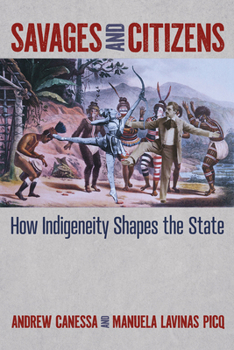Savages and Citizens: How Indigeneity Shapes the State
Although Indigenous peoples are often perceived as standing outside political modernity, Savages and Citizens takes the provocative view that Indigenous people have been fundamental to how contemporary state sovereignty was imagined, theorized, and practiced. Delving into European political philosophy, comparative politics, and contemporary international law, the book shows how the concept of indigeneity has shaped the development of the modern state. The exclusion of Indigenous people was not a collateral byproduct; it was a political project in its own right. The book argues that indigeneity is a political identity relational to modern nation-states and that Indigenous politics, although marking the boundary of the state, are co-constitutive of colonial processes of state-making. In showing how indigeneity is central to how the international system of states operates, the book forefronts Indigenous peoples as political actors to reject essentializing views that reduce them to cultural "survivors" rooted in the past. With insights drawn from diverse global contexts and empirical research from Bolivia and Ecuador, this work advocates for the relevance of Indigenous studies within political science and argues for an ethnography of sovereignty in anthropology. Savages and Citizens makes a compelling case for the centrality of Indigenous perspectives to understand the modern state from political theory to international studies.
Format:Hardcover
Language:English
ISBN:0816553963
ISBN13:9780816553969
Release Date:November 2024
Publisher:University of Arizona Press
Length:238 Pages
Weight:1.05 lbs.
Dimensions:0.9" x 6.3" x 9.2"
Customer Reviews
0 rating





